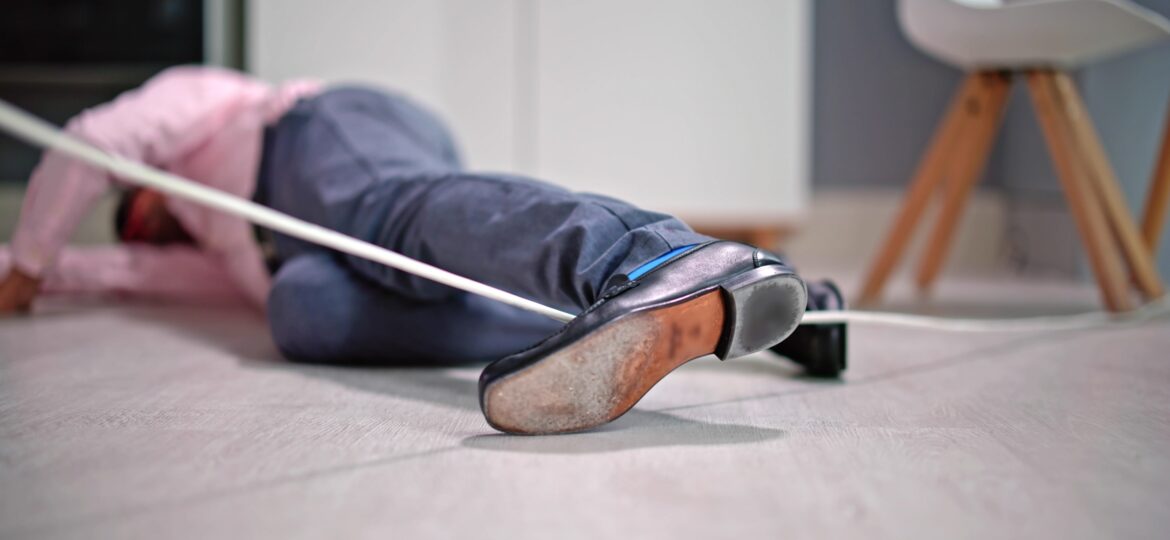People who suffer injuries due to an accident caused by negligence are usually eligible for financial compensation. However, some people are unsure of their eligibility because they’re unfamiliar with the legal definition of negligence and how their state defines it. The Quad City injury lawyers at Winstein, Kavensky & Cunningham explain negligence in personal injury claims and how the law in Illinois and Iowa defines it.
What Is Negligence?
Negligence, in the most basic sense, is the failure to act with reasonable care. A property owner has a “duty of care” when people are visiting their property (such as a home or business place) or using their property (borrowing a car). Negligence is breaching a duty of care, leading to harm or damage.
Therefore, based on the definition above, a business owner is negligent if the business doesn’t warn people that a floor is wet after it was mopped, which causes an employee or visitor to suffer a slip-and-fall injury. A car owner would be negligent if the owner lets a friend borrow their vehicle but fails to warn them of problematic brakes, leading to car accident injuries.
Legally, there are four elements to proving negligence in personal injury claims: establishing duty, showing breach of duty, showing causation, and proving damages. Negligence can be active (intentionally disregarding safety) or passive (carelessness). It can be as simple as a quick lapse of judgment or a longstanding pattern of behavior. The type and degree of negligence can significantly impact a personal injury claim.
Negligence in Illinois Personal Injury Claims
Negligence plays a crucial role in personal injury claims in Rock Island, Rock Falls, Moline, and other parts of Illinois. For a personal injury claim based on negligence to succeed in Illinois, the plaintiff must prove the four elements: duty, breach, causation, and damages.
First, you must establish that the defendant owed a duty of care to the plaintiff. This duty varies depending on the circumstances but generally means acting as a reasonable person would under similar circumstances. Second, the plaintiff must demonstrate that the defendant breached this duty through action or inaction. Third, there must be a direct causal link between the defendant’s breach of duty and the injuries suffered by the plaintiff. Lastly, the plaintiff must have incurred actual damages, such as bodily injury, property damage, or financial losses, resulting from the breach.
Furthermore, Illinois follows a modified comparative negligence rule, allowing the plaintiff to recover damages even if they are partly at fault, as long as their share of the blame is less than 50%. However, their compensation will be reduced by their percentage of fault. Understanding these nuances is vital for anyone involved in a personal injury claim in Illinois.
Negligence in Iowa Personal Injury Claims
Personal injury claims in Bettendorf, Davenport, and other parts of Iowa are very similar to their Illinois counterparts. The four basic components of negligence apply. Iowa also follows a modified comparative negligence rule, which means that the injured party can recover damages only if they are 50% or less at fault for the accident. If the claimant is found to be 51% or more at fault, they are barred from receiving any compensation from the other at-fault parties. Additionally, the amount of compensation the injured party can recover is reduced by their percentage of fault. For example, if a claimant is found to be 30% responsible for an accident, the damages awarded will be reduced by 30%.
The comparative fault system emphasizes the importance of establishing the degree of negligence attributable to each party involved in a personal injury case. It also encourages parties to engage in safer behaviors, knowing that their own negligence could significantly impact their ability to claim damages. Understanding and proving negligence is vital to any personal injury claim in Iowa, making it essential for claimants to have knowledgeable legal representation.
Contact a Quad Cities Injury Attorney
The team at Winstein, Kavensky & Cunningham hopes that you understand the elements of negligence in personal injury claims better. If you still have questions or concerns about how it applies to your situation, contact us for a free, no-obligation consultation. Our lawyers have served Quad Cities injury victims for over 60 years and have more than 120 years of combined experience winning maximum settlements for our clients.
You can reach Winstein, Kavensky & Cunningham by phone at (309) 794-1515 or connect with us online through LiveChat to explore your legal options. Remember, our knowledgeable and experienced injury lawyers work on a “no win, no fee” basis, which means you don’t pay a thing unless a settlement has been recovered on your behalf. Take the first step towards the settlement you deserve for your injuries, and call us today.
